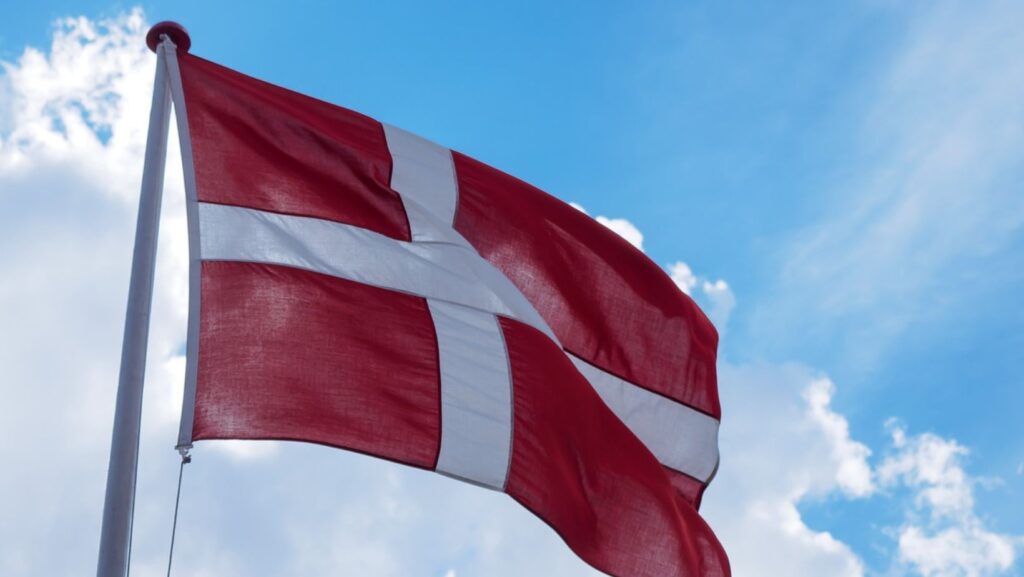
Denmark is a great place for entrepreneurs looking to start a business. With its stable economy and solid support system, it offers a lot of advantages. Whether you’re planning to set up a company in Denmark or already have a Danish business, this guide will walk you through the important steps and regulations to help your venture succeed.
Denmark is a great place for entrepreneurs looking to start a business. With its stable economy and solid support system, it offers a lot of advantages. Whether you’re planning to set up a company in Denmark or already have a Danish business, this guide will walk you through the important steps and regulations to help your venture succeed.
Starting a business in Denmark comes with many benefits. In this guide, we’ll cover everything from legal structures and taxes to employee regulations and more.
The Basics Of Starting A Company In Denmark
Starting a business in Denmark is fairly simple, thanks to its easy registration process and supportive business environment. Entrepreneurs have several legal structures to choose from, with the Anpartsselskab (ApS), a private limited company, being the most popular.
When deciding which structure is best for your business, it’s important to know what each option offers. Here’s a quick overview:
- Private Limited Company (ApS): The most common choice for small to medium-sized businesses. It requires at least DKK 40,000 in share capital, which can be in cash or assets. A major benefit of an ApS is limited liability, meaning your personal assets are protected if the business runs into financial trouble.
- Public Limited Company (A/S): This option is for larger businesses or those with more complex needs. It requires at least DKK 400,000 in share capital and is typically chosen by companies planning to go public or those seeking larger investments.
- Sole Proprietorship: This is a good option if you’re going solo. There’s no minimum share capital requirement, but you’ll be personally liable for any debts your business might have.
- Partnerships (I/S): A good option if you’re starting a business with one or more partners. It works well for smaller operations, but it doesn’t offer the same protection as a limited company.
Registering Your Company In Denmark
Once you’ve decided on the right business structure, your next step is to register your company with the Danish Business Authority (Erhvervsstyrelsen). This process is simple and can be done online through the Virk.dk portal. You’ll need to complete the required forms and upload your registration documents to get started.
When registering your business in Denmark, you’ll be asked to provide some essential details:
- Company name
- Business address
- Company structure (e.g., ApS, A/S)
- Details of the owners and directors
- Description of the company’s business activities
The registration process is fairly quick, usually taking just a few days. Once it’s done, your business will be assigned a CVR number (Central Business Registration number), which is mandatory for all businesses operating in Denmark. This number is crucial for things like tax reporting and other official purposes.
Understanding The Danish Business Environment
Denmark is often ranked as one of the best countries to do business in due to its stable economy, ease of setting up a company, and excellent infrastructure. The country has a strong focus on innovation and sustainability, which are important factors when running a business in Denmark.
The Danish Economy
Denmark’s economy is diversified and well-established. The country is known for its high standard of living, skilled workforce, and strong international trade connections. With its membership in the European Union, Denmark offers access to a large market, making it an attractive location for businesses looking to expand internationally.
Moreover, Denmark’s economy is built on a foundation of technology, manufacturing, and services, offering ample opportunities for various industries. Whether you’re in tech, healthcare, or green energy, there’s a space for your business in Denmark.
Innovation And Sustainability
A key aspect of running a business in Denmark is the country’s strong focus on innovation and sustainability. Denmark has a reputation for being one of the most environmentally conscious countries in the world, with many companies adopting sustainable practices.
If you’re looking to start a Danish business, it’s worth noting that sustainability is often not only a legal requirement but also a market expectation. Danish consumers and businesses alike tend to favor companies that prioritize sustainability in their operations and products.
Business Culture In Denmark
The Danish business culture is characterized by flat hierarchies, open communication, and a strong emphasis on work-life balance. Danish companies generally value flexibility, innovation, and employee well-being.

If you’re planning to establish a Danish company, understanding the local culture and business etiquette is important. Denmark has a collaborative and transparent business environment, which fosters effective decision-making and creativity.
Legal And Tax Requirements For Danish Companies
Running a company in Denmark comes with specific legal and tax obligations that business owners must comply with to avoid penalties and ensure long-term success.
Taxes For Businesses in Denmark
Denmark has a transparent and relatively simple tax system, which is one of the reasons many entrepreneurs choose to set up their Danish business here. The country has one of the highest tax rates in the world, but in return, it offers extensive public services and a high standard of living.
Some of the key taxes that apply to Danish companies include:
- Corporate tax – The corporate tax rate in Denmark is 22%. This applies to all profits earned by companies registered in Denmark. Corporate tax is due annually, and companies must file a tax return with the Danish Tax Agency (SKAT).
- VAT (Value Added Tax) – The standard VAT rate in Denmark is 25%, which applies to most goods and services. If your business has a turnover above a certain threshold (DKK 50,000), you must register for VAT and file regular VAT returns.
- Payroll taxes – If you have employees, you will need to withhold taxes on their salaries and contribute to the Danish social security system. Payroll taxes are deducted at source and are used to fund Denmark’s social services, including healthcare and pensions.
Employee Regulations
Denmark has strong labor laws that protect the rights of employees and ensure fair working conditions. If you’re planning to hire staff for your Danish company, it’s important to familiarize yourself with the key labor regulations.
Some of the most important aspects include:
- Employee contracts – Employees in Denmark must have a written contract that outlines their job description, salary, and working conditions. This ensures clarity for both the employee and the employer.
- Work hours – The standard workweek in Denmark is 37 hours, although this can vary depending on the industry and the terms of the employment contract.
- Vacation entitlements – Danish employees are entitled to a minimum of five weeks of paid vacation per year.
- Social Security contributions – Employers must contribute to social security, which includes health insurance, pension plans, and unemployment benefits.
Business Licenses And Permits
Depending on the type of business you’re running in Denmark, you may need specific licenses or permits to operate legally. For instance, if you’re involved in the sale of food, alcohol, or certain regulated products, you may need additional approvals from local authorities.
Running A Successful Business In Denmark
Once your Danish company is up and running, the focus naturally shifts from the initial setup to growth and long-term sustainability. Luckily, Denmark has a solid framework that helps businesses thrive. The country is known not only for its easy company formation process but also for the ongoing support it offers entrepreneurs looking to expand and strengthen their presence in both local and global markets.
Support For Entrepreneurs
Denmark provides a range of government-backed resources to help entrepreneurs at different stages of their business journey. Whether you’re just starting or looking to scale, there are opportunities for financial support, mentorship, and networking to guide your company toward success.

The Danish government offers various grants, loans, and financial schemes to foster innovation, sustainability, and growth. These programs often focus on specific sectors like technology, green energy, and research and development, reflecting Denmark’s commitment to encouraging innovation. One key initiative is Innovationsfonden (The Innovation Fund), which offers funding for research, development, and new technologies.
Expanding Your Business
Denmark’s location in Northern Europe offers a unique advantage for businesses looking to expand into other European markets. With its strong transportation infrastructure, open economy, and established international trade relationships, Denmark serves as a hub for reaching the wider European Union market and beyond.
As an EU member, Denmark provides easy access to the EU’s internal market of over 500 million consumers. For companies planning international expansion, Denmark’s position is ideal for entering markets in Scandinavia, the UK, Germany, and other parts of Europe. Additionally, Denmark’s trade agreements with non-EU countries, particularly in renewable energy and technology, present further growth opportunities.
Denmark’s infrastructure is top-notch, with modern ports, airports, and a well-connected road and rail network. Copenhagen, the capital, is a major trade and logistics hub in Northern Europe, making it easy for businesses to import and export goods. The country’s logistics sector is efficient, helping companies manage supply chains and deliver products quickly and cost-effectively, both locally and internationally.
Conclusion
Running a company in Denmark can be both exciting and rewarding. The country’s business-friendly environment, strong legal framework, and support for innovation make it an appealing destination for entrepreneurs. Whether you’re just starting a business in Denmark or looking to grow your existing company, understanding the legal, financial, and cultural aspects of doing business here is essential for success in this dynamic market.







